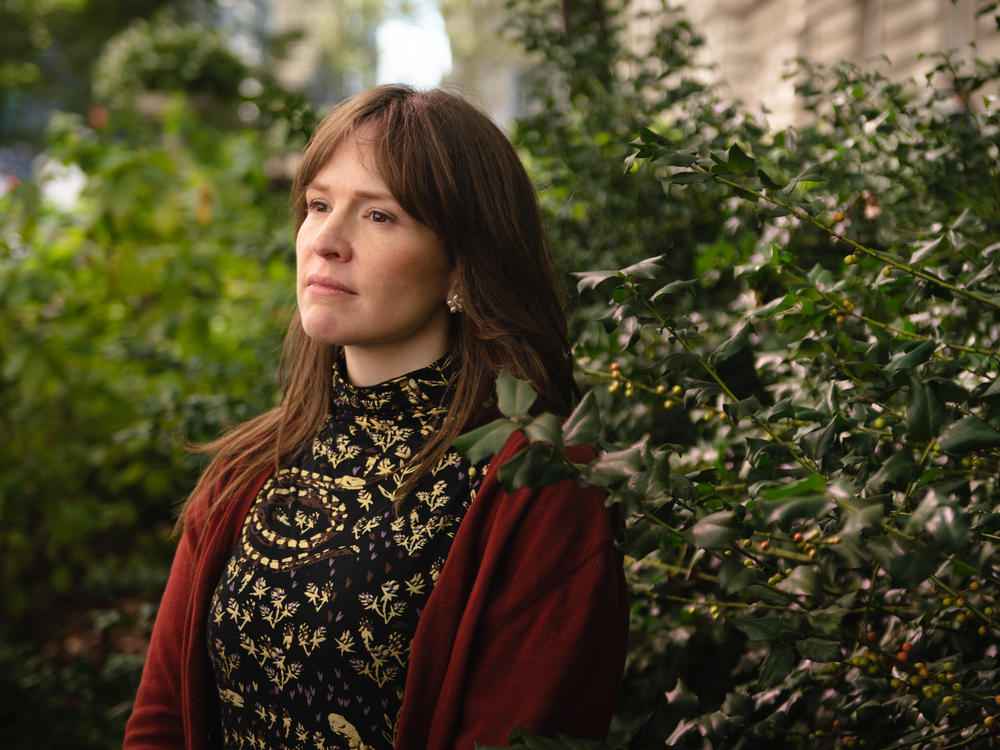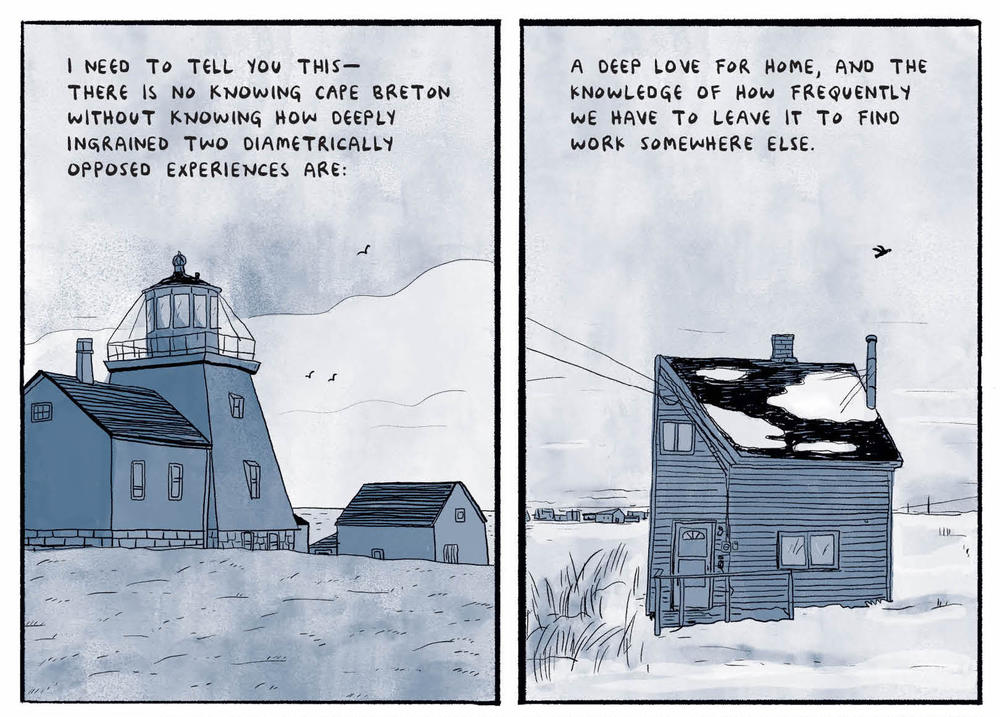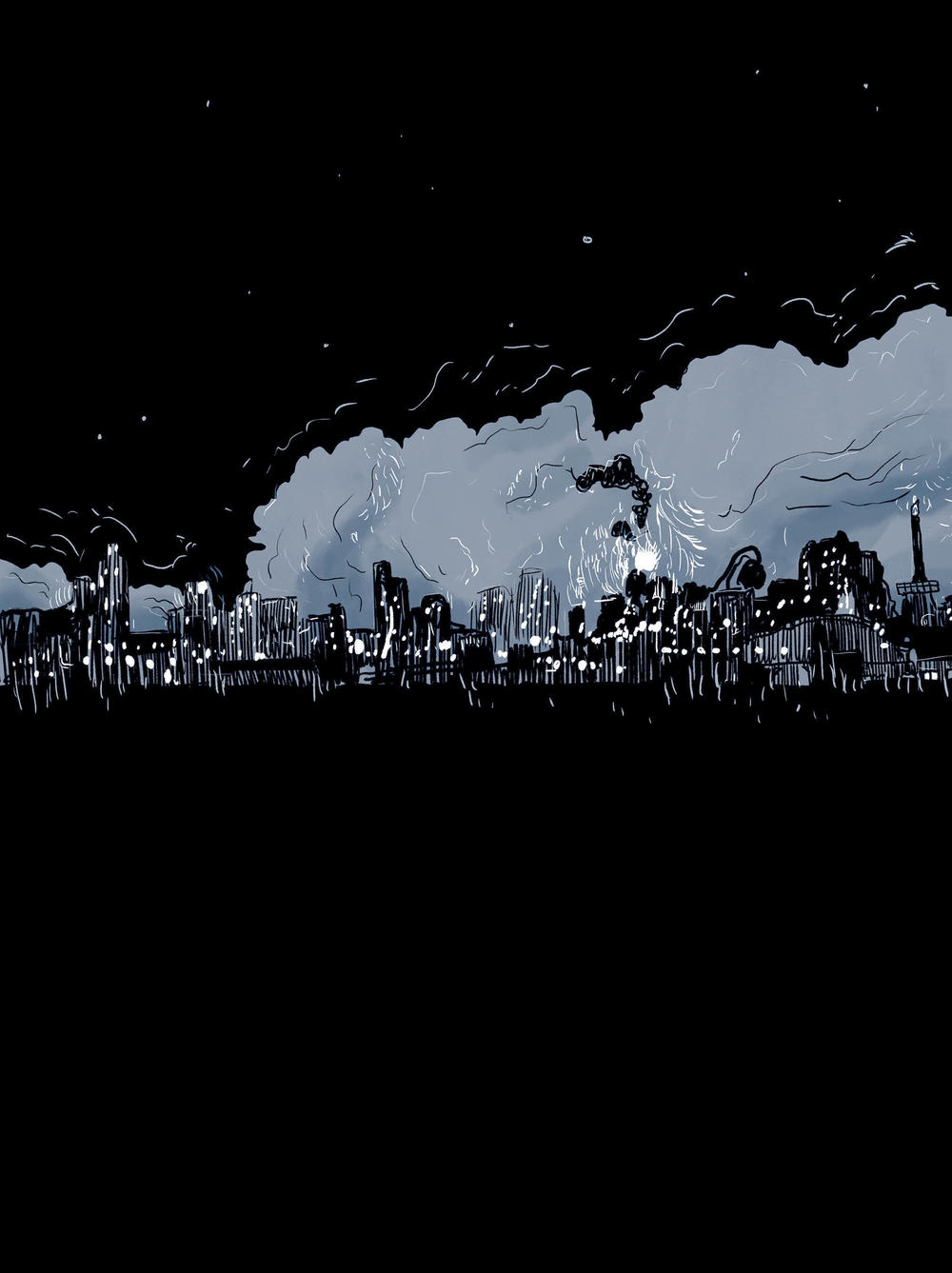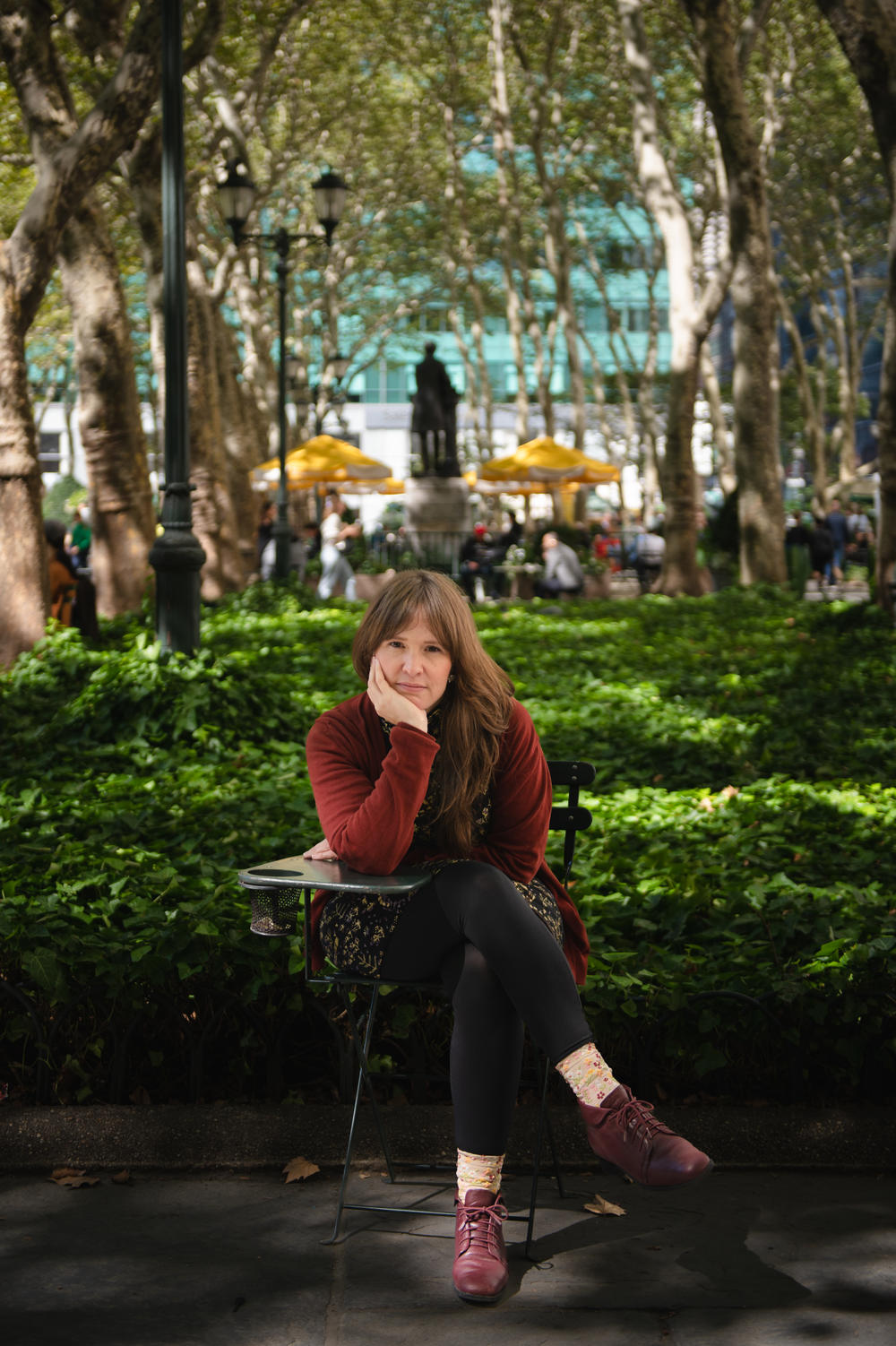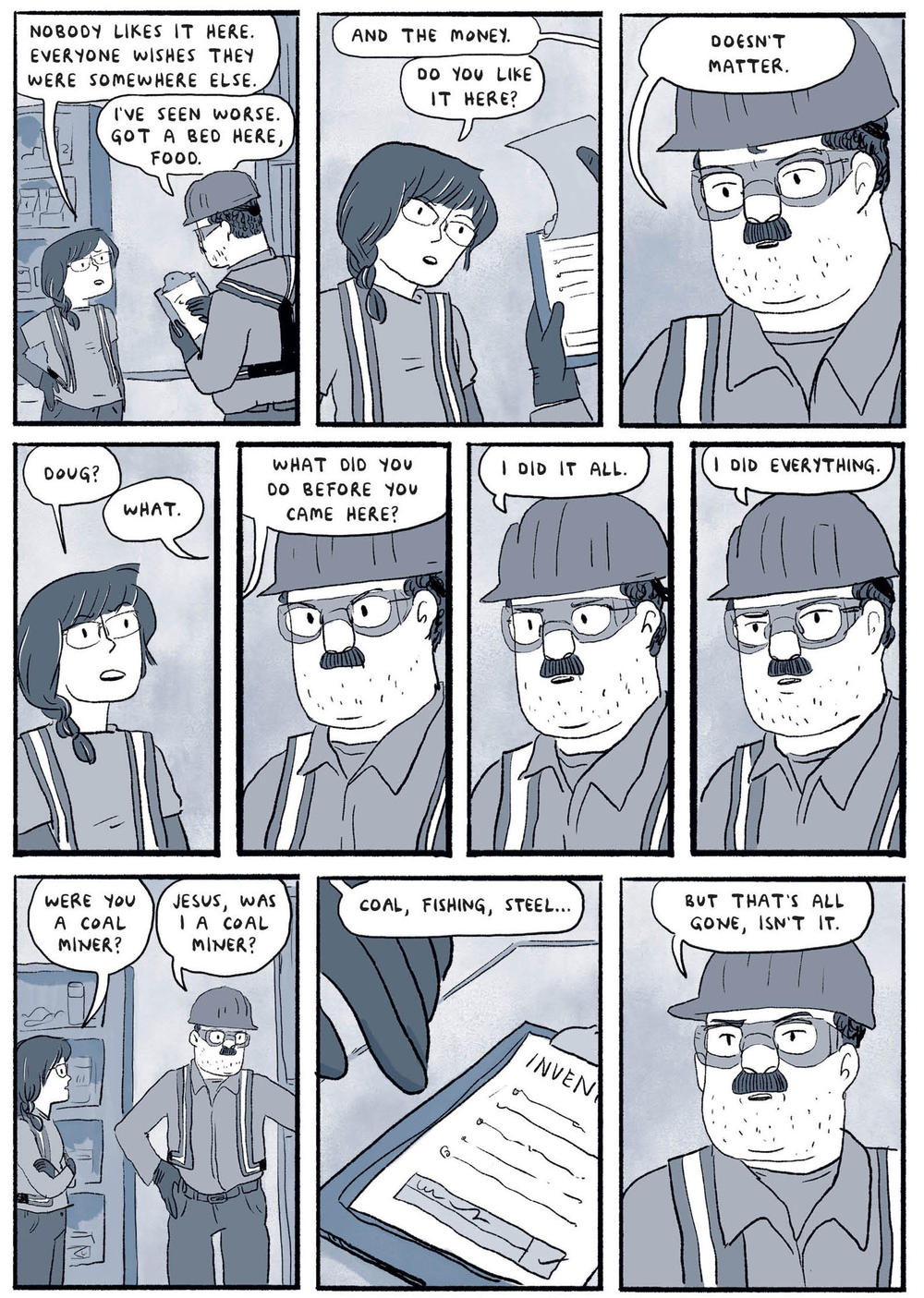Section Branding
Header Content
Kate Beaton's new graphic memoir is about the dark type of job you take for money
Primary Content
There are jobs you take because you might find them fulfilling, or they're a stepping stone to a career you see for yourself. And then there are jobs you take for the money. The new book, Ducks: Two Years in the Oil Sands, is about the latter.
It's from Kate Beaton, author of the popular webcomic Hark! A Vagrant, as well as a number of children's books. But while her comic is known for its funny and exuberant takes on historical figures, with Ducks, Beaton uses her talents to examine her own life. Specifically the years she spent working at the oil sands of Fort McMurray, in Alberta, Canada.
"I didn't have a good time there," said Beaton. "I lived in the camps, and that was hard. That was very hard. I was a young woman, and by myself. I was harassed all the time."
The book starts over on the east coast, on Cape Breton Island in Nova Scotia, where Beaton is from. It's a beautiful place that's long been economically disadvantaged. For a while it was home to various industries – steel, coal, fishing. And then it wasn't. So the island started sending its people out to wherever jobs were.
This idea – that you have to leave home to make a life for yourself – ingrained itself into the culture of Cape Breton. And the book opens with Beaton talking us through how.
"This push and pull defines us," a cartoon Beaton says in the opening. "It's all over our music, our literature, and our understanding of our place in the world. To have not is a mental state, as well as an economic one."
Her parents try to convince her to go into teaching or nursing, but she heads west, to the oil sands of Fort McMurray. It's an oil boomtown populated mostly by men who are, similarly, away from their homes and families. It makes it all the easier for them to fall into the traps of boomtowns — drugs, alcohol, loneliness.
The book follows Beaton as she deals with her own sense of isolation, while having to put up with constant sexism and misogyny. Men spread rumors about hooking up with her. They talk about her body at work openly. They walk into her bedroom "by accident."
But Beaton depicts small moments of tenderness too, from people looking out for her in their own ways. And there are the people who populate the city and are simply putting their heads down and providing for their families, just trying to get by.
Chris Turner, author of the book The Patch: The People, Pipelines, and Politics of the Oil Sands said the book avoids caricaturizing the town. Where other depictions at the time portrayed Fort McMurray as a lawless Wild West, Beaton's treats the workers with care and grace. That took a lot of courage, Turner said, "given that a lot of these guys, if you wanted to be damning about it, were enabling some of the culture she ran into."
Throughout Ducks, Beaton draws these huge landscapes. There'll be a big beautiful sky juxtaposed with seemingly equally huge and (and just as imposing) machinery on the ground. It's a stark reminder of what the oil industry is doing to the land. Land that was previously occupied by someone else.
There's a scene late in the book when an increasingly tired Beaton watches this interview with Celina Harpe. a Cree elder talking about the impacts the oil companies have had on their community. "Everything's ruined, our lives around our lands are ruined, our water, the air, everything," Harpe says. "At the cost of our lives — as long as they get their money. They don't care how many of us they kill off. That's the way I feel."
The moment coalesces the books themes of complicity and complicity and agency and power. Beaton said when the companies first came in to the area, the First Nations people in the area weren't given much say. And now they are tangled up economically in these industries that are polluting their land, and leaving them with higher rates of cancer.
"But what choice did they have but to be involved, or be completely crushed?" said Beaton.
The book is called Ducks after in incident in 2008 when a couple hundred migrating ducks landed in Canadian oil sludge and died. In the grander scheme of ecological disasters, it wasn't horrible. But the ducks were photogenic, and it became front page news. People started speaking out against the oil companies. Fines were issued.
When you listen to Beaton talk about her time in the oil sands, it's clear she's weighted down by everything that didn't make front page news, from the First Nations communities wrecked by the oil mining, to the decisions her fellow workers are forced to make when working the oil sands is one of the few options for a decent wage.
Beaton said people constantly try and make the oil sands about one thing. To refine it down to one issue. Ducks shows why that's impossible. "Life isn't that way," she said.
Copyright 2022 NPR. To see more, visit https://www.npr.org.
